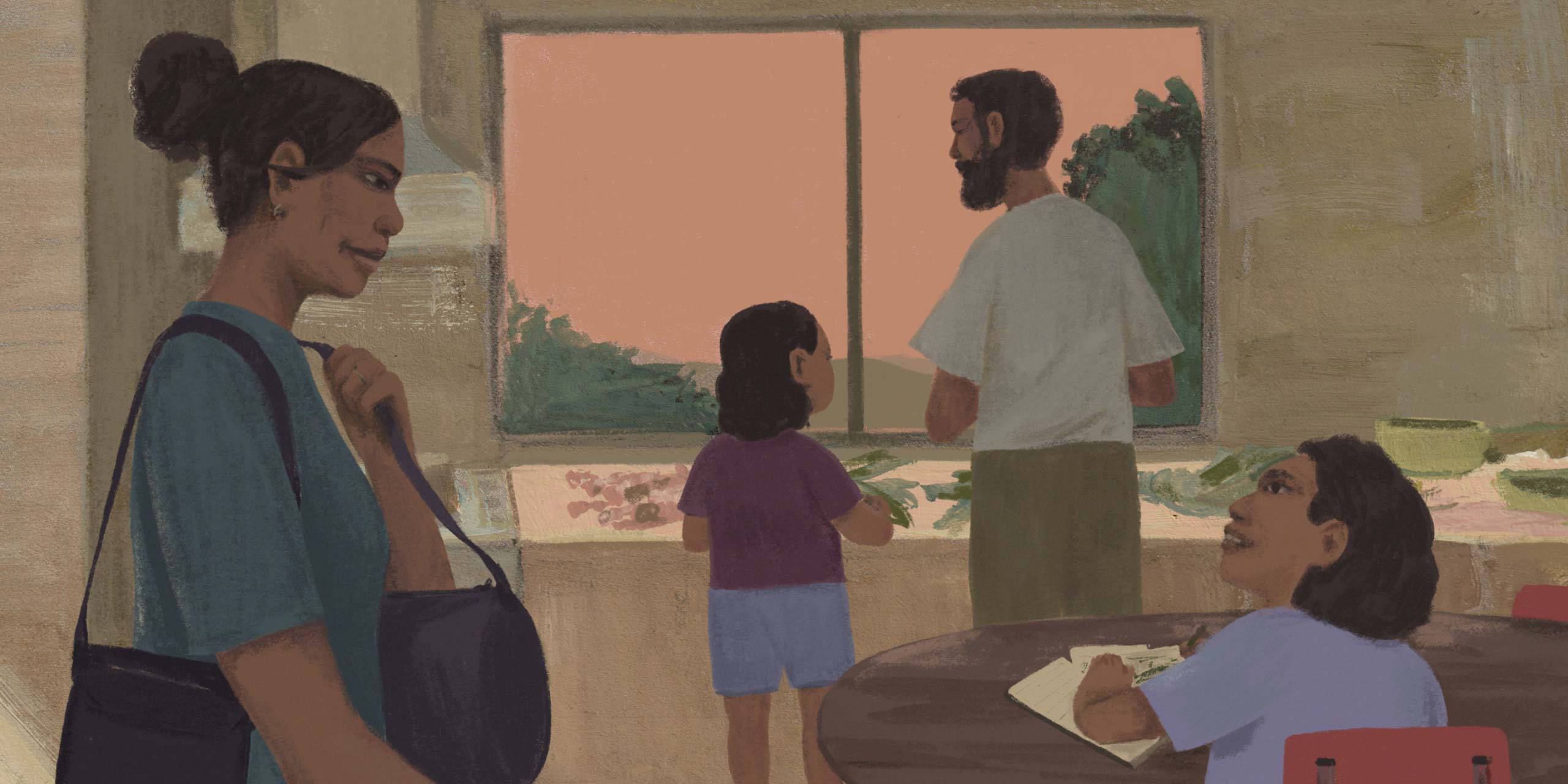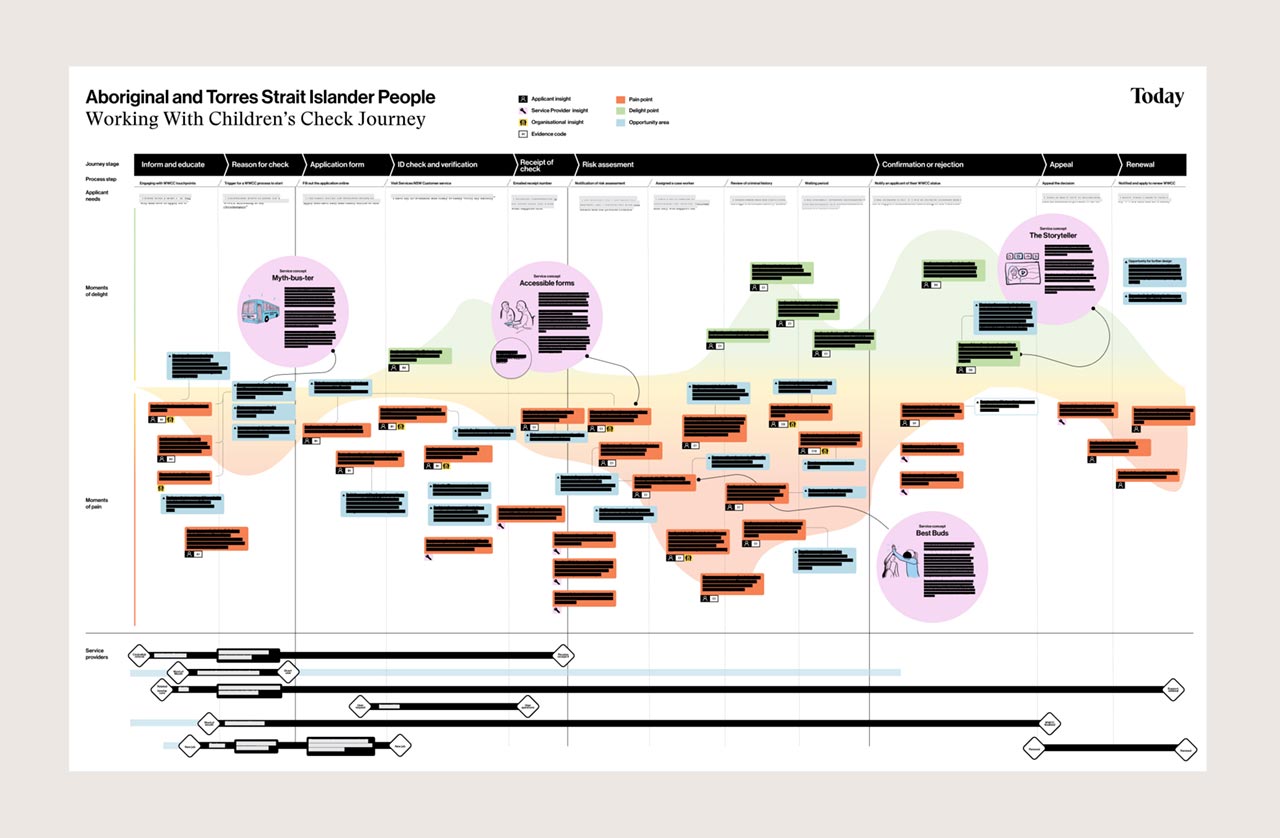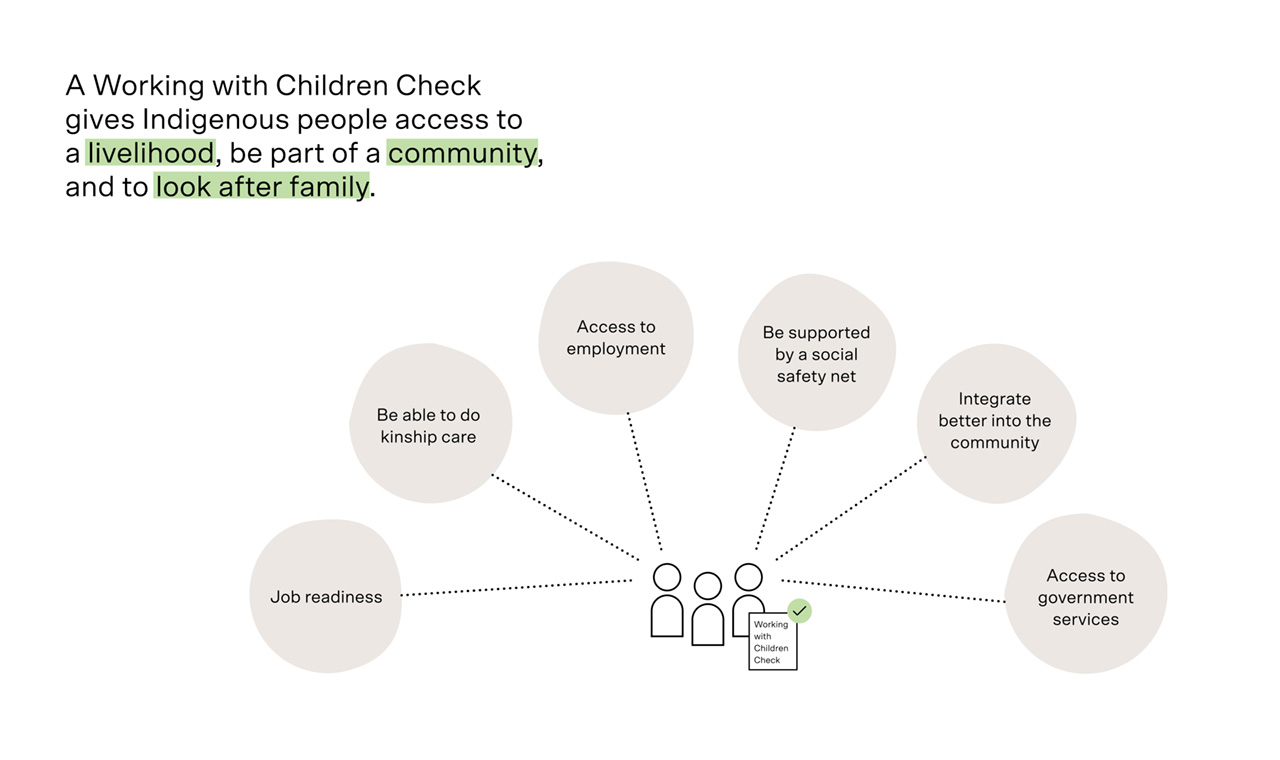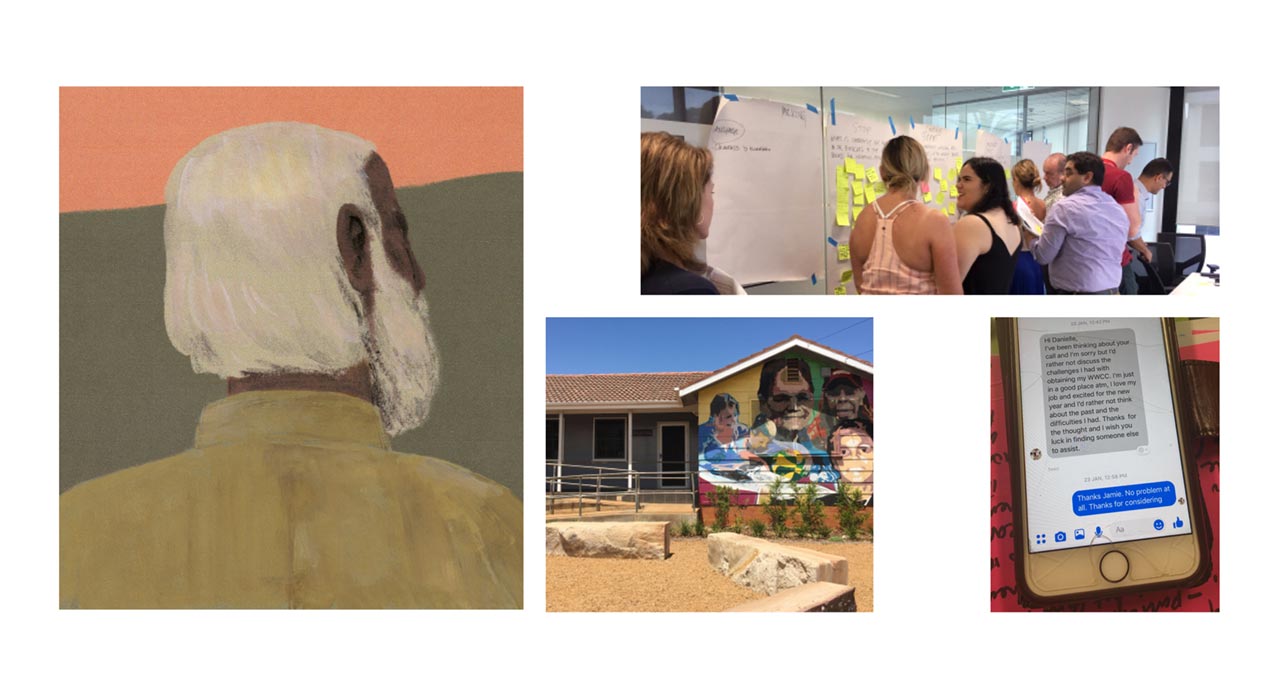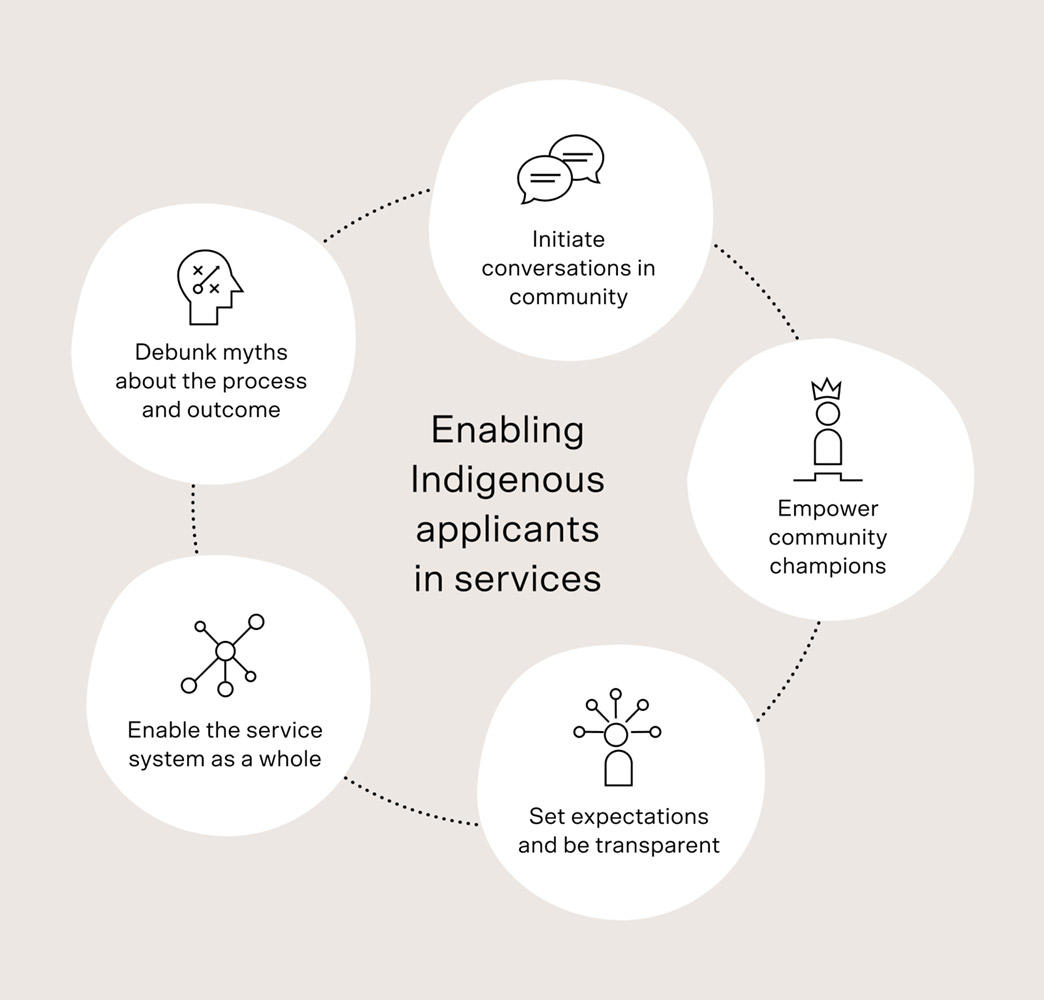We worked with Indigenous people and the Office of the Children’s Guardian (OCG) to identify key service initiatives to encourage and enable more Indigenous applicants to obtain a WWCC, delivering better outcomes for themselves and their families.
To approach this challenge we ensured effective co-design to fully understand the experience of Indigenous Australians; what it’s like to apply, how it relates to intergenerational trauma and discrimination, and what specific community needs are.
This work has been successfully integrated by the OCG across their service, increasing Indigenous people’s access to work, services and Indigenous children being cared for within their communities.

